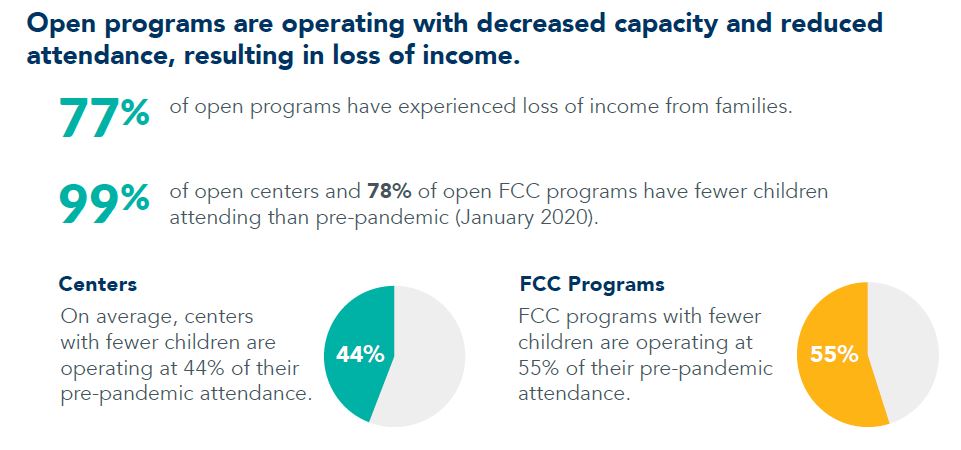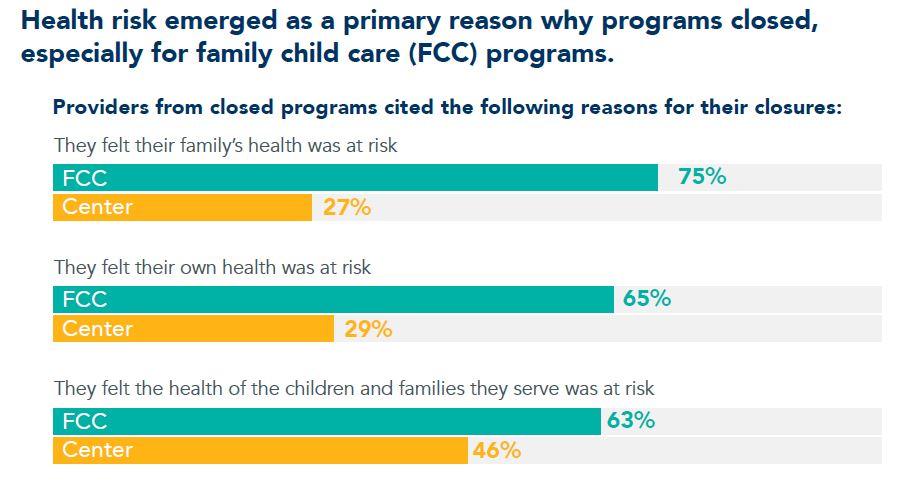James Liu’s 18-month-old son has a temperature of 97.1, which means it’s okay to drop him off at Lil Nancy’s Primary Schoolhouse in West Oakland.
“My wife and I both kind of depend on Miss Nancy being open and available for us. And it's been a huge help,” said Liu, who runs a medical practice. He and his wife are both back to work, and without day care, “One of us would have to stay at home with him and that would really, really hurt the finances."
We care for the children. But who's caring for us?
Miss Nancy Harvey, Lil Nancy's Primary Schoolhouse
But Nancy Harvey, who left the corporate world to start her child care business 16 years ago, doesn’t know how much longer she can continue to operate under the pressures of COVID-19. “I wouldn't be able to continue to pay my staff. So, I'd have to let my staff go,” said Harvey.

According to a new study released by UC Berkeley’s Center for the Study of Child Care Employment (CSCCE), out of more than 950 child care facilities surveyed by the study, one in four programs have closed. Among those that remain open, 99% of the preschools and 77% of the family-run programs have fewer children attending.

“Child care providers are having to take on financial burden themselves to keep their programs functioning,” said Sean Doocy, one of the researchers on the study, adding, “In some cases we're seeing ... folks taking on personal credit card debt. In other cases, that's not being able to pay rent or mortgage for their house.”
Child care providers say they are in an impossible situation. The state has strictly limited how many children they can care for - in order to follow social distancing guidelines. Meanwhile, many parents are still reluctant to take their children to childcare. Yet another hurdle is the substantial cost of sanitizing equipment, PPE, and staff to clean toys and furniture throughout the day.
The child care industry is on the brink of collapse.
Susan Gillmore, CEO, North Bay Children's Center
“The child care industry is on the brink of collapse ... because of COVID-19 right now,” said Susan Gilmore,CEO of North Bay Children’s Center, which has 14 child care locations in Marin and Sonoma counties.

Gilmore says she has hundreds of families on a waiting list because she’s had to cut capacity by nearly half. The CSCCE survey showed that among the facilities that are open, preschool centers are operating at 44% capacity and family-run homes at 55%.
California day cares report more than 30 cases of COVID-19 per day since the state’s Department of Social Services started tracking the data on July 9, shortly after the Investigative Unit began questioning the department on the issue. There have been nearly 1300 infections in California’s 38,000 child care facilities since the pandemic began.
According to CSCCE's survey, 29% of child care facilities are worried children will be exposed to COVID-19 while attending their day cares, and 38% of them worry they’ll be exposed to the virus.

“We care for the children. But who's caring for us?” said Nancy Harvey, who said she will not be able to stay open much longer under the current conditions.
“We cannot talk about reopening our economy without having a conversation about how families will care for their children.”
Congresswoman Rosa DeLauro, U.S. House of Representatives
The National Women’s Law Center estimates that child care providers will need $9.6 billion per month to survive. The Child Care is Essential Act, introduced by Representative Rosa DeLauro of Connecticut, would create a $50 billion fund to help child care providers cover operating costs. The measure will be up for a vote in the House of Representatives next week.
“We cannot talk about reopening our economy without having a conversation about how families will care for their children,” Congresswoman DeLauro said, adding, “Child care was already expensive and difficult to find before the pandemic. The situation is deteriorating rapidly and could become catastrophic.”
“We have to start thinking of this as a very large societal issue because after all, we enable other folks to go to work,” said Nancy Harvey.

